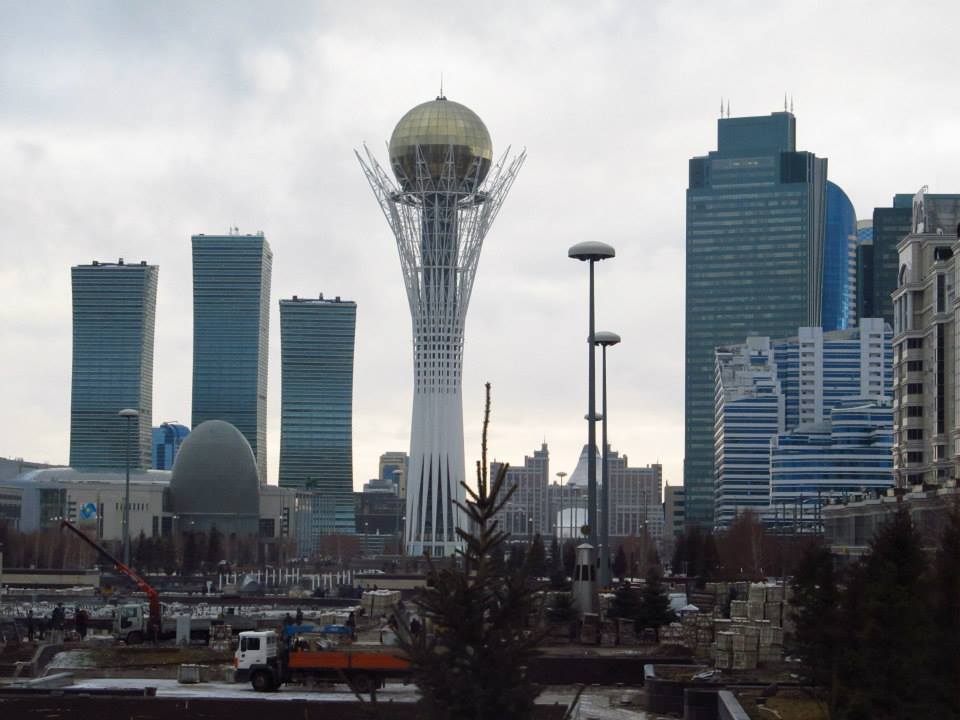DOWNLOAD PDF
THE ISSUE
TREATMENT OF ETHNIC UIGHER AND KAZAKH ASYLUM-SEEKERS FROM XINJIANG UIGHER AUTONOMOUS REGION (UAR)
The UN and states around the world have condemned the ongoing systematic oppression of ethnic minorities in China, including the mass arbitrary detention of Chinese Uighurs and other Muslim minorities, including Kazakhs in the Xinjiang Uygur Autonomous Region (XUAR). As documented by Amnesty International, the government of the People’s Republic of China has engaged in a campaign of mass internment, intrusive surveillance, political indoctrination, and forced cultural assimilation against Uyghurs, Kazakhs, and other predominantly Muslim ethnic groups living in Xinjiang. An estimated one million people are detained in the political “re-education camps” in Xinjiang. The Kazakhstani government has been reluctant to raise the issue of human rights violations against ethnic Kazakhs living in XUAR. It has not only failed to protect asylum seekers fleeing persecution in XUAR, but has also tried to silence those exposing human rights violations in China.
THE HUMAN COST
On January 6, 2020, court hearings began against two ethnic Kazakh men—Kaster Musakhanuly and Murager Alimuly—on charges of illegally crossing the border. Both have applied for asylum in Kazakhstan.
Kaster Musakhanuly claims that he was held in a re-education camp in XUAR and beaten.
On December 6, 2019, the director of the border service of the Committee of National Security of Kazakhstan, Darhan Dilmanov, stated that the men would be returned to China.
FAILURE TO PROTECT ASYLUM-SEEKERS
Kazakhstan has international human rights obligations under the Convention on the Status of Refugees and the Convention Against Torture not to return anybody to a country where they have a well-founded fear of persecution or where they could face torture, and not to prosecute refugees and asylum-seekers for their illegal entry or presence in a country. However, asylum-seekers from XUAR in Kazakhstan are frequently prosecuted for illegally crossing the border and denied asylum.
In April 2018, Sayragul Sautybai fled China and sought asylum in Kazakhstan. She had worked as an instructor in re-education camps in China and testified about the situation in the camps. She was arrested for illegally crossing the border and spent several months fearing deportation to China before being released on bail in August. In October 2018, her application for asylum was turned down and she has since left the country.
PROSECUTING HUMAN RIGHTS DEFENDERS
On March 10, Serikzhan Bilash, the leader of the human rights organization Atajurt—which exposes human rights violations against ethnic Kazakhs in China—was placed under house arrest. He was charged with “incitement of social, national, clan, race, class, or religious hatred” for his outspoken criticism of human rights violations against Muslim ethnic minorities in China. He was released on August 17 after he agreed to stop campaigning on human rights violations in China, was fined the equivalent of $300 and was placed under travel restrictions for three months.
TALKING POINTS
- Nobody should be purposefully put into harm’s way. The Chinese government’s abuses against Muslims are horrific, systematic, and well documented. Kazakhstan’s authorities must provide refuge to people fleeing the abuse, not send them back to their abusers.
- The U.S. cannot be silent as the Chinese government arrests and imprisons over one million people simply for who they are, and we cannot be silent as the governments of neighboring countries abet them. We need all countries in the region to protect Muslims who are at risk.
RECOMMENDATIONS
- Urge the Kazakhstani authorities to live up to their international human rights obligations to not return asylum-seekers from XUAR to China, where there is a high risk that they would face torture and other ill-treatment. In particular, demand that Kaster Muakhanuly and Murager Alimuly be granted asylum in Kazakhstan.
- Urge the Kazakhstani authorities to uphold the principles of the UN Declaration on Human Rights Defenders by promoting and protecting the work of human rights defenders and recognizing the right of all to raise concerns about the policies and actions of individual officials and governmental bodies that violate human rights.
- Suggest to the Kazakhstani authorities that they substantially amend Article 164 of the Criminal Code to ensure that any provision aimed at combatting advocacy of hatred or discrimination is in strict compliance with Article 19(3) of the International Covenant on Civil and Political Rights, and that it does not unlawfully restrict freedom of expression.
ADDITIONAL RESOURCES
- China: “where are they?” Time for answers about mass detentions in the Xinjiang Uighur Autonomous Region, 24 September 2018, Index Number: ASA 17/9113/2018 (available here)
- Kazakhstan: Fundamental freedoms under pressure: Amnesty International submission for the UN Universal Periodic Review, 34th session of the UPR working group, November 2019 (available here)
- Kazakhstan: Further information: human rights defender facing bogus charges: Serikzhan bilash, 16 August 2019, Index number: EUR 57/0894/2019 (available here)
FOR MORE INFORMATION, PLEASE CONTACT:
Daniel Balson
Advocacy Director, Europe and Central Asia
(202) 509-8132
